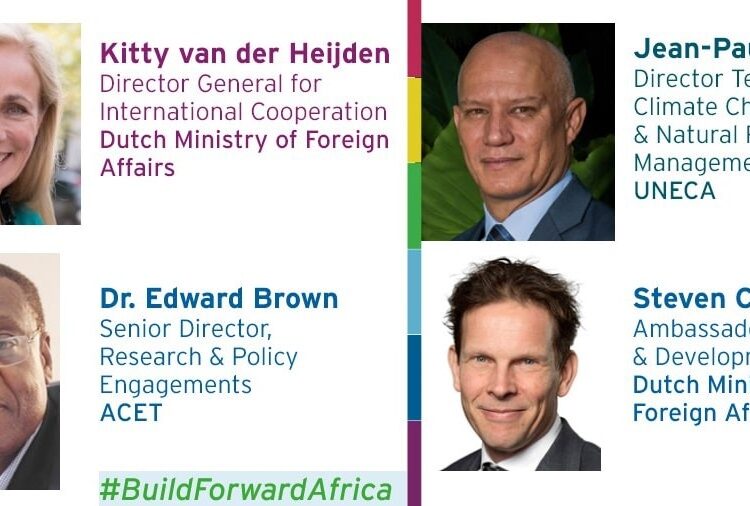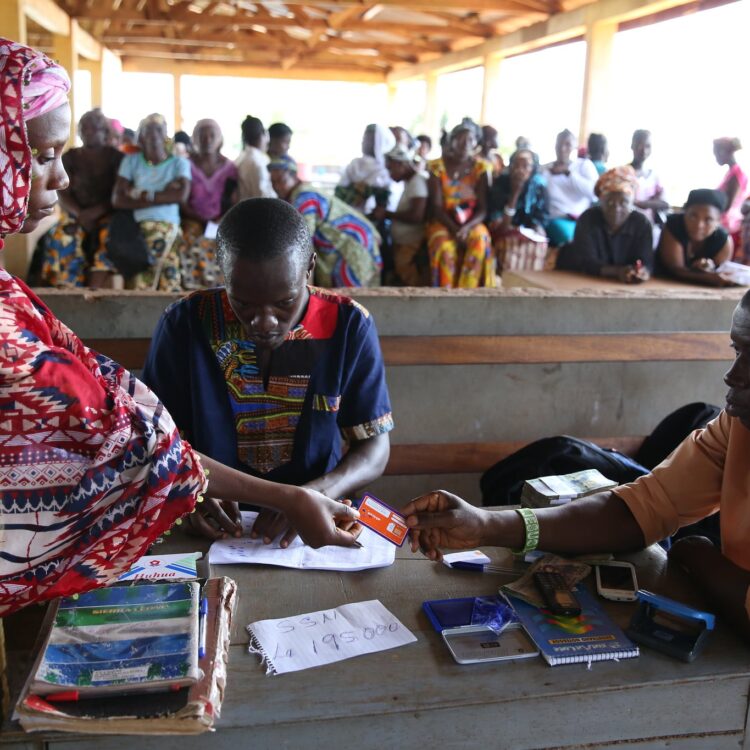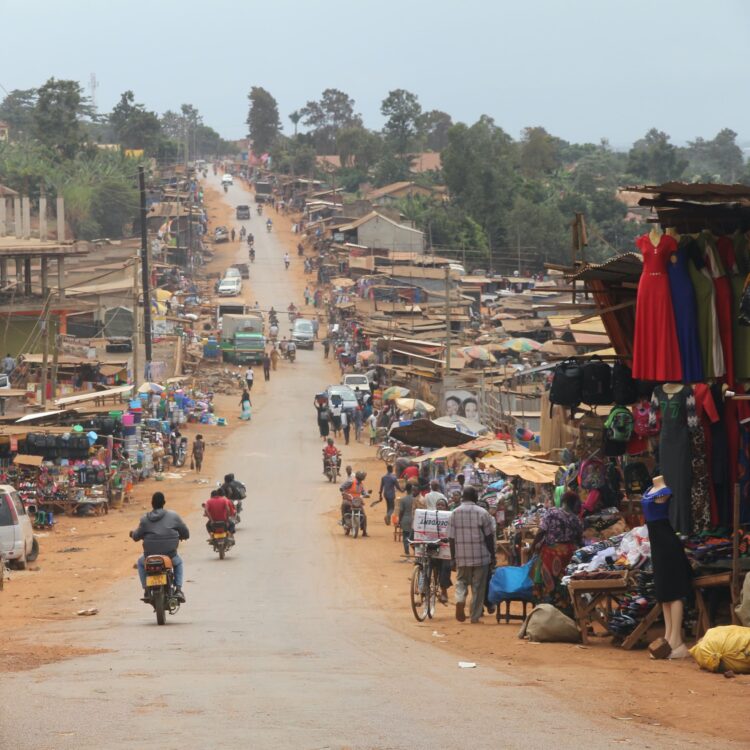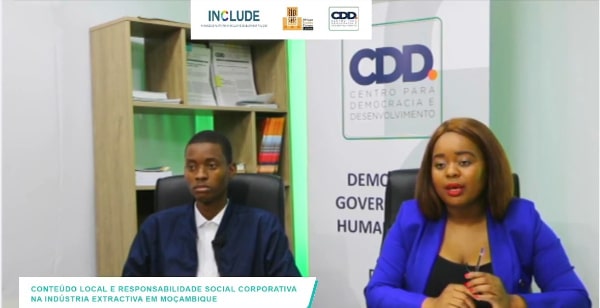
Building forward more inclusively will require addressing the root causes of inequality by (i) promoting decent jobs, (ii) enable digital innovation and its institutionalization to ensure resilience, (iii) reinforcing social protection mechanisms for ‘a new and better normal’. Moreover, emphasis should also be placed on (iv) climate adaptation and mitigation. To promote decent youth employment, education systems across the continent should be upgraded and skill enhancement programs combined with solutions focused on the structural causes of unemployment. To tackle climate change, emphasis and investment should be allotted to green agriculture and green solutions, such as crop diversification, climate-smart agriculture, and the reduction of emissions from farming practices and agroforestry.
These are the most important recommendations that emerged during the wrap up of the INCLUDE conference ‘Building forward more inclusively’. This final closing session on 16 June distilled the outcomes of the interactions between stakeholders from Africa, Europe and the USA throughout the conference and was divided into three sections:
- An inspirational keynote speech delivered by Mavis Owusu-Gyamfi (Executive Vice President, African Center for Economic Transformation)
- Reflections from the youth moderators about the future of Africa:
- Dr Chiamaka Nwachukwu, Co-coordinator of the AU African Youth Charter Hustlers program
- Amanda Kabagambe, Bethel Advisors
- Wrap up of the conference’s main takeaways and recommendations by Prof. Isa Baud, INCLUDE Chair
Inspiration in the face of the pandemic
Mavis Owusu-Gyamfi highlighted that “when we are thinking of growth with depth, we must really focus on the three binding constraints that the continent needs to navigate right now: youth and employment, digital innovation, and climate adaptation and mitigation”. She applauded African innovations and unexpected collaborations that emerged in the face of the pandemic, yet the sustainability of such innovations remains a challenge. To overcome these issues, ACET’s recent report recommends:
- ensuring that young people have the required technical and soft skills to enter the labour market
- promoting climate-smart agriculture, protecting green and blue ecosystems, and exploiting renewable energy as key policies in the transformation agenda
- creating the right regulatory environment to promote the emergence of an innovation ecosystem
- capitalizing on the pandemic experience of African countries working together on the continental level to make the African Continental Free Trade Area (AfCFTA) work
- promoting visionary leadership, as well as the accountability of the government and business
Youth’s determination and innovative thinking
The points raised by Owusu-Gyamfi resonated well with the reflections shared by two youth moderators: Dr Chiamaka Nwachukwu and Amanda Kabagambe. Dr Nwachukwu stressed that young people’s skills, determination and innovative thinking are available and already in use, therefore, they should be invited to co-create solutions and policies directly affecting youth, instead of mere being the end-users of already formed policies. She also sees a big opportunity to strengthen the position of young entrepreneurs and the private sector more broadly, related to the AfCFTA. She recommends the removal of barriers to interregional African trade, improved access to financial services, and more favourable policies for small and medium enterprises (SMEs).
The importance of strengthening the private sector and adaptability of young Ugandan entrepreneurs were reconfirmed by Amanda Kabagambe. She shared a short video in which she interviewed three young Ugandan entrepreneurs (Xente, Biogenics and Fezah). Although from different sectors, these interviews highlight the challenges that businesses are facing and how they have been able to pivot during the pandemic to successfully deliver technology-based solutions. The digitalization of basic services and the critical role youth play in driving this transformation are topics relevant to INCLUDE and its newly launched research program on this topic.
Conference key recommendations
Based on the outcomes of the interactions between diverse stakeholders throughout the conference, the following key recommendations were delivered by the INCLUDE Steering Group Chair, Prof. Isa Baud:
- The COVID-19 pandemic was a crisis within and on top of already existing crises. To ensure that government responses to the pandemic do not exacerbate existing inequalities, attention should be paid to vulnerable groups, such as informal workers, women, youth and the extreme poor. Additionally, policy responses should be based on local realities, and citizens’ input, and participation in the process is critical. Innovative solutions, as they emerge during the crisis, should be properly institutionalized in implementation frameworks to ensure future resilience.
- Decent youth employment is a cornerstone of inclusive development. To combat youth unemployment in Africa, an integrated approach that combines education policies, attention to economic growth and meaningful youth participation is necessary. The upgrading of education systems and skill enhancement programs should be combined with solutions focused on the structural causes of unemployment. Such solutions include the harmonization of employment-relevant issues in all governmental policies and programs.
- The entire agricultural value chain is the sector with the greatest potential for growth in Africa and it can absorb large numbers of young people. Emphasis and investment should be allotted to green agriculture, in order to tackle climate change and unemployment simultaneously. Green solutions for agriculture include crop diversification, climate-smart agriculture, and reducing emissions from farming practices and agroforestry.
- Social protection programs can yield positive results in terms of the eradication of poverty and inequality. Within social protection programs, cash transfer schemes are the most widely applied, as they have the greatest potential to reach vulnerable groups in society. To increase their coverage, social protection programs should be rebranded as an investment in human capital; the African middle classes should be prompted to support these programs through higher taxes; and civil society organizations should hold governments accountable to ensure that they deliver on their promises.
- Donors must respect their pledges and financial commitments. In doing so, they should devise quick, immediate and substantial financing and (trade) policies that address structural barriers and promote inclusive policies.
- Multi-stakeholder dialogues will become more effective if the gap between research, policy and practice is bridged with the help of established and dedicated knowledge platforms.




